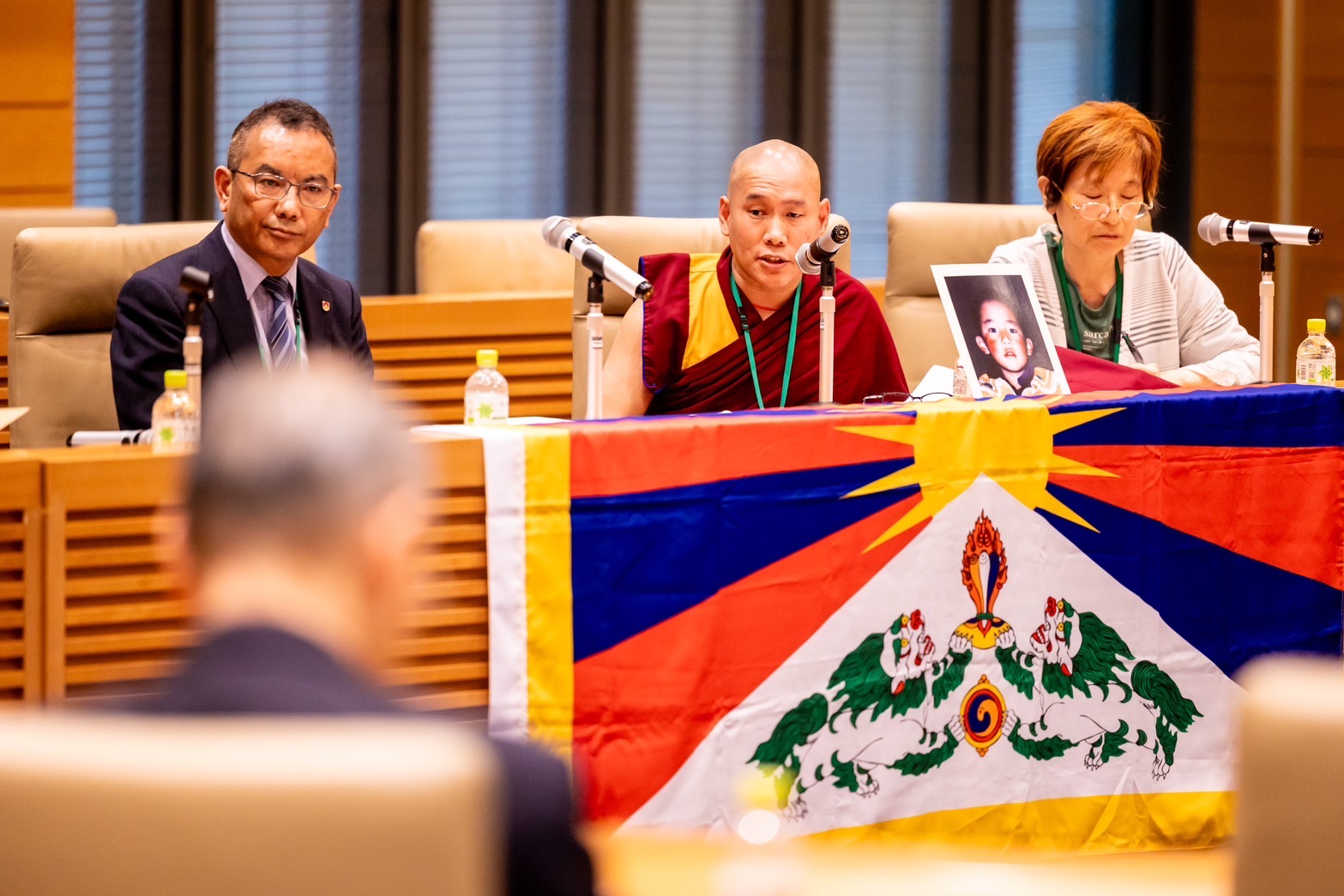
On May 7, 2024, a critical workshop was held at the Japan Lower House International Conference Hall in Tokyo, focusing on Tibet‘s ongoing human rights issues. The event, organized by the Liaison Office of His Holiness the Dalai Lama for Japan and East Asia, brought together Japanese parliamentarians, Tibet supporters, and media members to discuss serious concerns about religious and human rights violations in the region.
Moderated by Ishibashi Rintaro, a member of the Liberal Democratic Party, the workshop highlighted the unresolved disappearance of the 11th Panchen Lama, a pressing issue that has gone unanswered for nearly thirty years. Dr. Tsewang Gyalpo Arya, a representative of the Liaison Office, expressed gratitude to those gathered and emphasized the worsening situation in Tibet under Chinese policies aimed at diluting Tibetan cultural and religious identity.
Chief Abbot Zeekgyab Rinpoche of the Tashi Lhunpo Monastery, now based in South India, delivered a poignant address about the oppression in Tibet. He stated, “The severe oppression and inhumane restrictions imposed on the Tibetan people, their movement, and their freedoms continued to worsen. The people of Tibet suffer in silence. Today, my primary appeal is for your help in the immediate release of the 11th Panchen Lama and addressing the long-standing plight of the Tibetan people in their native land.”
Rinpoche urged Japanese lawmakers to:
- Pressure the Chinese government to disclose the whereabouts of the 11th Panchen Lama and ensure his release.
- Pass a resolution condemning China‘s interference in Tibetan religious practices and human rights violations.
- Support the Dalai Lama‘s vision of transforming Tibet into a zone of peace through dialogue and the Middle Way Approach.
The workshop also heard from Furuya Keiji, Chairman of the parliamentarian committee monitoring China‘s human rights practices, who assured full support for the Tibetan cause. Another key speaker, Shimomura Hakubun, recalled Japan‘s 2022 parliamentary resolution that condemned China‘s actions in Tibet and other regions, highlighting the positive role of Buddhism in fostering societal peace and harmony.
ALSO READ: Bharat Tibbat Sahyog Manch Marks 25 Years of Unity
The discussion also covered the impact of colonial boarding schools on Tibetan culture, the destruction of religious statues and prayer wheels in Drago, and the recent forced relocations for dam construction projects.
Lawmaker Ishikawa Akimasa spoke on the historical and cultural significance of the Tashi Lhunpo Monastery and the role of the Panchen Lamas in Tibetan Buddhism.
The workshop reflects growing concerns among Japanese lawmakers about the situation in Tibet and signals a continued commitment to addressing these issues at the highest levels.






